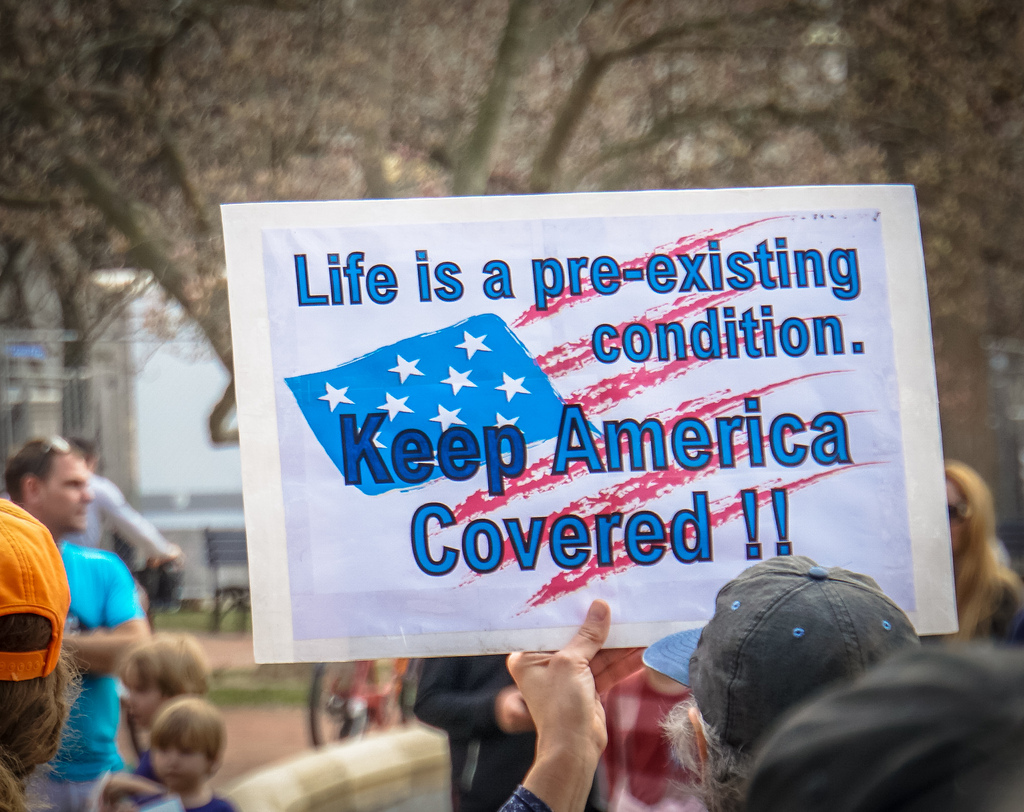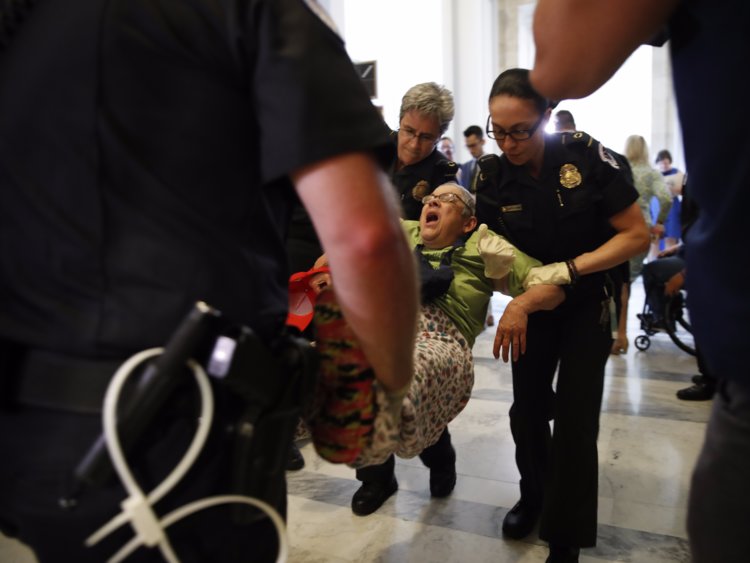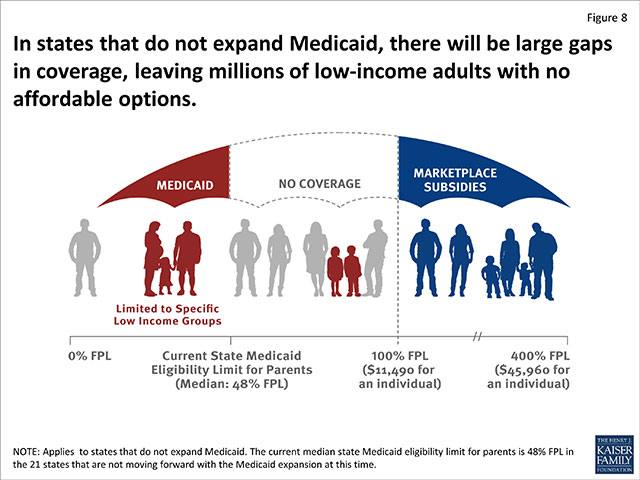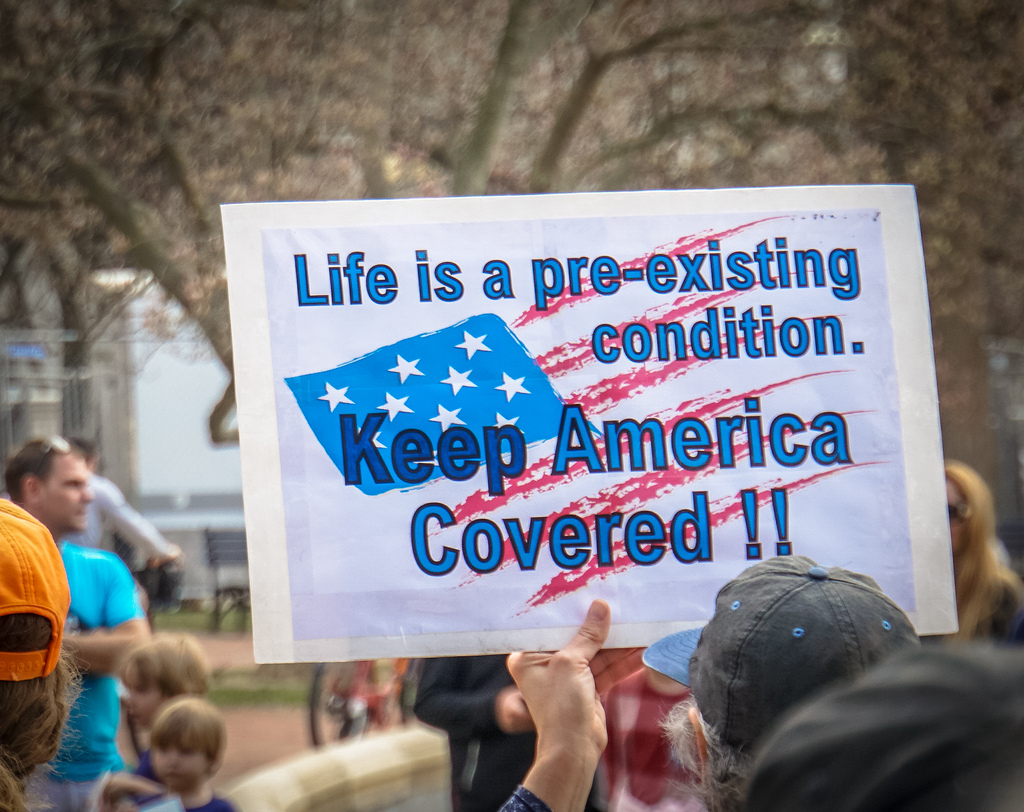Jon Shaffer is a policy wonk. As Senior Strategist for Community Organizing at Partners in Health and Executive Director at GlobeMed, he helped organize and train teams to fight for healthcare rights and access. In this interview, he sits down with Kiran Bhai, a member of the Clara team, to discuss what is at stake in this new fight over the Affordable Care Act.

Kiran Bhai: Tell us just a little bit about the ACA, and then any changes that patients should be aware of through the current administration and then any tips on advocacy.
Jon Shaffer: That's a big question, obviously. I mean, I think the thing is, I guess the first thing to say is the entire Affordable Care Act has been under assault. Unfortunately by a single party, the Republican party. I don't know how partisan you want to get here.
Kiran Bhai: Yeah.
Jon Shaffer: But it's true. The Republican party has had a blood vengeance for the Affordable Care Act, since it was passed.
The reasons for that I think seem pretty clear, that it's been politically expedient to challenge the Affordable Care Act. But more than anything, I think the real disdain for the ACA has come from really one.
The ACA's a massive law that does alter some things, like regulate insurance products and the insurance industry, setting standards and scores under which insurance plans can't drop, creating these exchanges that enable people to be able to more efficiently search for and shop for health insurance in states.
But to me, and to many people who care about health justice, the most important thing was the large increase in federal subsidies for Medicaid, state-run Medicaid programs. And as we know, for low income Americans, it's the only way that insurance can be active, through Medicaid.
So, the dramatic expansion of Medicaid funding through the federal government is the thing that's probably the most important component of the ACA. We care about health justice. And the thing that unfortunately, again, the Republicans have sought to target most aggressively in trying to repeal.
Last summer, all this came to a head, in which the Republican Congress essentially had all these different repeal strategies. You remember, probably, skinny repeal and full repeal. All these different iterations of trying to attack different components of the law. All of which proved extremely politically toxic, and ultimately ended in defeat, right? Because activists across the United States hammered on members in the House and the Senate, particularly Republicans, to tell them that the consequences for this repeal.

In the end, really, one Senator prevented the bill from passing, prevented gutting of key provisions of the Affordable Care Act. And so the Affordable Care Act, in terms of federal law, is still in place.
So that's great.
The challenge is that the Affordable Care Act is administered by the Centers for Medicare and Medicaid, primarily. And that is an executive function of US government. And so, the federal government has significant control over the way in which that law is administered. And again, not to be overly partisan, but I think it would be fact, the current administration's not terribly interested following through on law.
And so, the Senators from Medicare and Medicaid have taken every chance that they could, through regulation and their willful incompetence administratively, to basically upset and damage the different marketplaces and exchanges that exist in states across the country to enable very, very Republican states to essentially cut some of the key provisions.
It’s all very complicated, because these things are all administered at a state level. The way that the Centers for Medicare and Medicaid exert pressure on or work with states is through, essentially, subsidizing and through the structure of the agreements that resources flow from the federal government to the state government to reimburse them.
Then states have significant leeway in terms of the way that they operate these things. Now you see the rise of proposals for work requirements for Medicaid. So if you're a low income American reliant on Medicaid for your health insurance, states like Indiana and Kentucky are trying to impose work requirements, saying, If you don't have a job within six months of receiving Medicaid, those benefits can be cut off.
Which is totally insane, right? If someone can't work or can't find a job, why would you deny them access to medical care that would probably be essential for them to get a job or to work? To day nothing of their health and human dignity and human rights.
Anyway, the law's in place as it was when it was passed. The administration is working to erode it in a variety of dimensions, both at the state level through state government and through the way in which the Centers for Medicare and Medicaid are negotiating and working with states. All that's very troubling.
That’s what makes all this so complicated and hard and nearly impossible for anyone to wrap their mind around besides these healthcare policy wonks who are kind of on another level of sophistication in terms of all the detail about this stuff.
Every state kind of is different in terms of how the ACA works, the way the exchanges work in their states, the options that they have in terms of health insurance providers, the cost of health insurance. It’s complicated.
Kiran Bhai: I can't imagine having to navigate it while having a chronic or serious illness and being in the middle of a clinical trial. 'Cause a lot of, I know personally a couple of people who are in clinical trials or doing clinical, using clinical trial medication at home. And it's not covered through most private insurances.
So they use Medicaid. And then, if Medicaid goes away, it's like $500,00 to continue it out of pocket. So it's kind of crazy.
Jon Shaffer: It is. I think the amount of paperwork… And someone who might be good for you to talk with for this, you know him well, but it's Phil Garrity. Just about his experience. But also, he was really involved with the advocacy that went on last summer.
There was a huge activist fight in which there was mass civil disobedience in the Senate and congressional office buildings to, again, highlight the damage and harm that repealing the ACA would have. And so Phil and I went down to DC a number of times, were arrested in nonviolent, civil disobedience. In Senators' offices. I got arrested in the Senate chamber, in the Capitol building.

Kiran Bhai: I do remember Phil telling me this.
Jon Shaffer: Yeah. And it was, again, to bring attention to and highlight with the American people what was at stake here. And so yeah, it was really intense. But I think it ultimately had an effect, I think, in allowing John McCain, Lisa Murkowski, and Susan Collins that to vote no on repeal.
But there's a lot more to be done. I think that a lot of activism probably needs to be at the state level. So for instance, in Maine, the governor of Maine, despite a referendum organized by the state, which passed overwhelmingly, the state legislature, which is voted for accepting expanded Medicaid funding from the federal government, is blocking it. And I don't know under what grounds he's essentially breaking the law. I think he said that he would go to jail over allowing Medicaid to be expanded in the state of Maine.
But these are the kinds of fights I think that probably are best fought, at the state level. It's very unclear what political pressure could be placed on Centers for Medicare and Medicaid, because it's this kind of small, little, obscure group and they're not really public-facing. So, yeah. That's kind of the state of things as far as I understand it.
Kiran Bhai: So, if a patient, for example, if they're too sick or don't have means to get to put pressure on the Senate and go to the office, are there other ways that you could recommend? For example, calling people or writing letters? Or are there any other recommendations, do you think?
Jon Shaffer: We got elections coming up, and I think I am, and again, not to make this partisan, but about policy.
Support, work with, endorse, give money to, vote for candidates who certainly support the Affordable Care Act.
Support expanded Medicaid coverage and funding for Medicaid. And ideally, and again, this is my own personal political bias, but candidates who support single payer healthcare and the right health in America. You know, an important thing, and again, I don't know if this goes by the scope of what you're looking at, but the Affordable Care Act is an important thing in that it expanded Medicaid.

But beyond that, it still is trying to kind of curb the abuses of the private health insurance industry. At the end of the day, private health insurers don't have the interests of patients in mind at their core, right? Their core is to take your insurance premiums and to limit the amount of expenditures that get paid out from the money that they make.
So, I mean, again, maybe people won't like that. But that's the fact, what the model for health insurance is is to limit payment. Which is often, I think, intentioned with the interests of patients, especially patients with long-term, chronic illnesses.
Kiran Bhai: Yeah. With pre-existing illnesses, that's what I'm worried about the most. How private insurances deal with pre-existing conditions without the ACA and how, if that changes, a lot of people will either be paying a lot more money for insurance or not be covered in a lot of places.
Jon Shaffer: Yeah. Well, this is another thing. Every chance the House and Senate Republicans get to try to think about whittling away, one of the big questions and a useful kind of talking point for activists, is the threat to pre-existing conditions.
All this I think to me is strong argument for a national health insurance program, in which every American is eligible to receive a standard package of health insurance just by virtue of living in the United States. And that shouldn't be, the idea that there would be anyone in America who didn't have some health insurance coverage is just bonkers and wrong and terrible.
I don't think subsidizing and regulating this patchwork system of private health insurance companies is the way to get there. I think the way to get there is through having an expanded and improved Medicare for all program. Medicare's one of the most popular federal programs ever created for Americans 65 and over. To receive, essentially, a public health insurance plan.
Why not make that eligible and available to everyone living in the United States? I think that's ultimately the solution. But again, I think we have to fight for smaller scale pragmatic victories right now, and I think most of that can happen at the state level.




